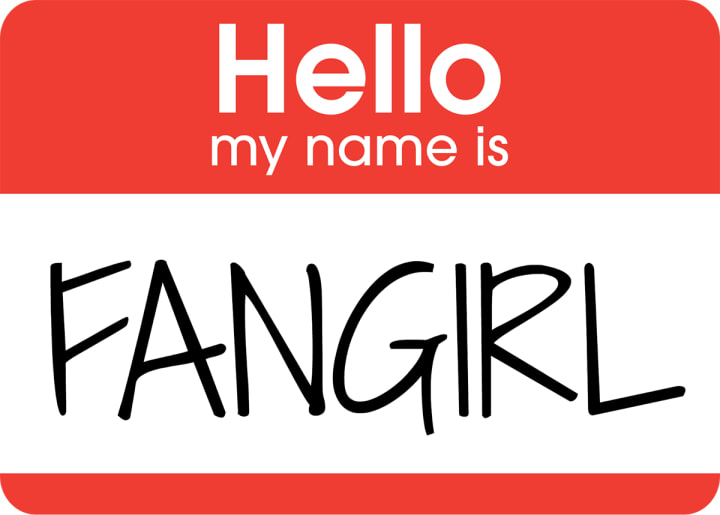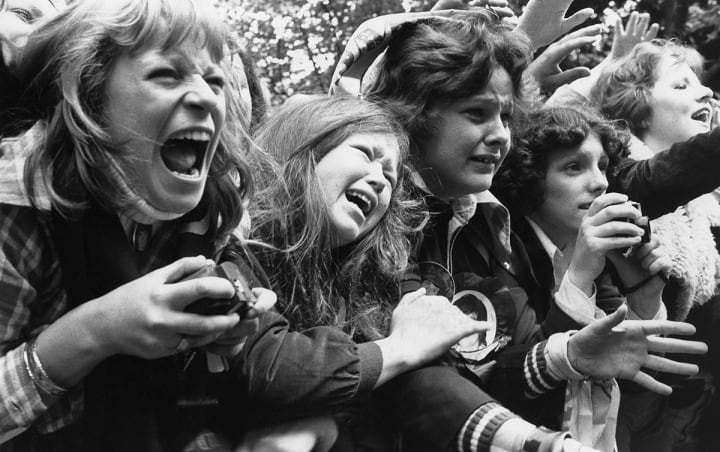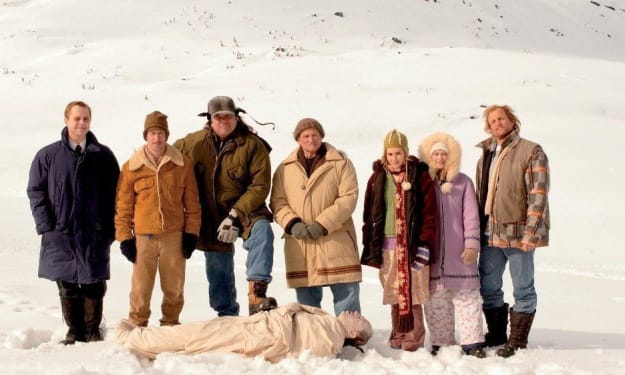Kathleen Smith Ultimate Fangirl
Kathleen Smith’s latest book, 'The Fangirl Life,' is a guide to channeling and embracing fangirl traits into everyday life.

In a world dominated by successful geeky franchises (Star Wars and Star Trek, I’m looking directly at you), we find ourselves simply obsessed. From comic conventions to cosplay, collectors items, and fan videos, the most dedicated fans can’t get enough of their favorite series. Waking moments are spent writing fan fiction or planning the next con, as well as consuming all news on the subject at hand.
Kathleen Smith is the ultimate fangirl. Coining herself as an “out-and-proud fangirl,” Smith has read every Star Wars universe novel in existence—among her other fangirl qualifications, of course. Oddly enough, she is also a licensed therapist. Through her website FangirlTherapy, she helps fellow fangirls and fanboys struggling with their own obsessions. Situated in an interesting dichotomy between comics and psychology, Kathleen Smith embraces her fangirl self to lead a successful, geek-filled life. In an exclusive interview with Geeks, Smith gives us an inside look into the organized madness.

Photo via The Fangirl Initiative
Geeks: Given all of the progress in gender equality, should we still have the distinction between the terms “fangirl” and “fanboy?”
Kathleen Smith: I think about this a lot! In writing the book, I wanted to speak to a particular community that I’ve encountered in fandom and the challenges they may face. This community is largely made up of women. However, I’m also mindful about how language can make people feel excluded. Many people have commented to me that they might identify as a fangirl one day, and not another, and I think that’s great. We always want to give people the opportunity to tell their own story rather than make them subscribe to one that’s constrained by gender or any other label.
Are there levels of fandom for fangirls? What tiers exist?
There’s so much gatekeeping in fandom that I’m hesitant to describe how people might level up (or down). But when I’m really invested in a character or show for at least a year, and when I dive deep into fandom, I call it a “situation.” Used in a sentence: “Kathleen can’t hang out with you right now— she’s in the Situation Room.” I’m also fascinated by why some people fangirl over one thing or another. So I made some fun personality quizzes, like "What Kind of Fangirl Are You?"
As a consult and therapist, have you ever prescribed media as a therapeutic source?
I actually use a lot of TV and film as a counseling professor. At the beginning of a semester, I ask my students what kinds of media inspire them or help them think about mental health, or maybe family relationships. It’s much more effective to use what speaks to them than choose my own shows. As far as clients, I have engaged people to think about the narratives that have been influential in their own lives, and to consider how these narratives can work for them. For a lot of young adults, Harry Potter characters frequently come up.
What inspired you to write The Fangirl Life?
In the counseling world, I was always coming across articles about therapists working with clients who are nerds or geeks. These were predominantly men working with men, so I thought, “How come no one has written about fangirls and mental health?” In my doctoral program I was introduced to many theories about how people change and what motivates them, and I realized that I had never asked myself, “What motivates me? What makes me want to change aspects of my life?” And I realized that a lot of my inspiration came from fiction. So I wanted to write a book that celebrated fiction as the ultimate motivator, but also addressed some of the challenges you face when you live the fangirl life.

Photo via Infectious Magazine
You’ve successfully incorporated your fangirl lifestyle into your career; but what made you enter the field of psychology? Why not pursue a career that was more media based?
You know, I actually considered going to journalism school when I was in college. But my mother died my sophomore year, and the helpers who were there for me during that time had a really powerful impact on my career trajectory. I like helping people think about their stories, and counseling is a wonderful opportunity to do that. But I never stopped wanting to write, and fortunately, there’s actually a need for mental health professionals who are writers. So I’ve found a career that is a nice blend of the two.
We heard that you didn’t wear pants for a year straight... What was it like? What inspired you to do so?
(Laughs) Yes, my “no pants challenge” was a year-long confidence experiment. I admired a fictional character’s wardrobe, and noticed that she always dressed so fashionably. So I decided to see if I felt and acted differently if I dressed nicer than I normally would for work or play. And it turns out that I did! Obviously there can be different strategies that work for people. Maybe it’s taking five minutes every morning to focus on positives in your life. Or perhaps it’s more of a Shonda Rhimes approach, where you say YES to every challenge for a year. For me, it was dressing up and not hiding behind my usual jeans and a t-shirt.
What is your first memory of fangirling?
I was a broadway fangirl from the start. My parents took me to see a production of Annie when I was five or six, and I remember being completely mesmerized. I held on to that Playbill until it fell apart. It was full of water spots because I would take it in the bathtub with me and flip through the bios of the tiny actresses. Some things never change! I’m still crying about actor bios.
You give people great tips on how to handle their fandom. Do you ever use your tips in your own life?
Yes! I try, and sometimes I fail spectacularly, but thinking about these ideas has definitely had an impact on my online behavior. When I’m tempted to correct or “well actually” someone, I think I’m more likely to pause and ask myself, “Is this about me helping someone, or wanting them to feel shame?” You have a lot more energy when you don’t use it on judging people for their choice or ship or how obsessed they are with something.
Where’s the first place you hit when entering into any Con?
First I spin around in excited circles and feel overwhelmed. Then I’ll do a few laps around the merch tables before I zoom in—especially if there are books. Usually I can talk myself out of buying t-shirts and cute, squishy things, but never books.

Photo via Metro
If you could only watch ONE of your favorite shows for the rest of your life, which would it be? Movie? Book?
OH MY GOODNESS. Okay show, probably Battlestar Galactica. Movie? Definitely The Empire Strikes Back. A book? Maybe an epic classic like Lonesome Dove.
Have you had any strange/exciting/life-changing encounters with any of your favorite celebrities that you fangirl over? What happened?
I don’t know if you would call it an encounter, but I was sitting on the front row/end seat when I saw Gillian Anderson in A Streetcar Named Desire in New York this spring. When the play started, I looked up and to my right and she was a solid 18 inches away from me. The lights were shining down on her hair and it was like seeing God. IT WAS A LOT.
There are a lot of secret fangirls/boys out there. What advice do you have for them to come out of their shells?
I’d tell them that changing yourself to fit in the group can give you temporary happiness, but finding that people will love you in spite of and because of your silly, brave, and authentic fan-self is the best gift. At the end of my life, I want people to say, “She was a little ridiculous, but she had a great time.”
Fangirling is more than a hobby; It’s a way of life for an enormous community. As a fangirl, you are a passionate, intelligent, and creative creature. But sometimes focusing on the fictional can keep you from putting those qualities to use in your everyday life. Rather than using your pop culture obsessions to avoid your real-life problems, you can tackle issues like stress, anxiety, and low self-esteem by turning obsession into inspiration. If you’re ready to start translating those fictional obsessions into some bold personal moves, let The Fangirl Life help you become your own ultimate fangirl.
About the Creator
Natasha Sydor
brand strategy @ prime video






Comments
There are no comments for this story
Be the first to respond and start the conversation.